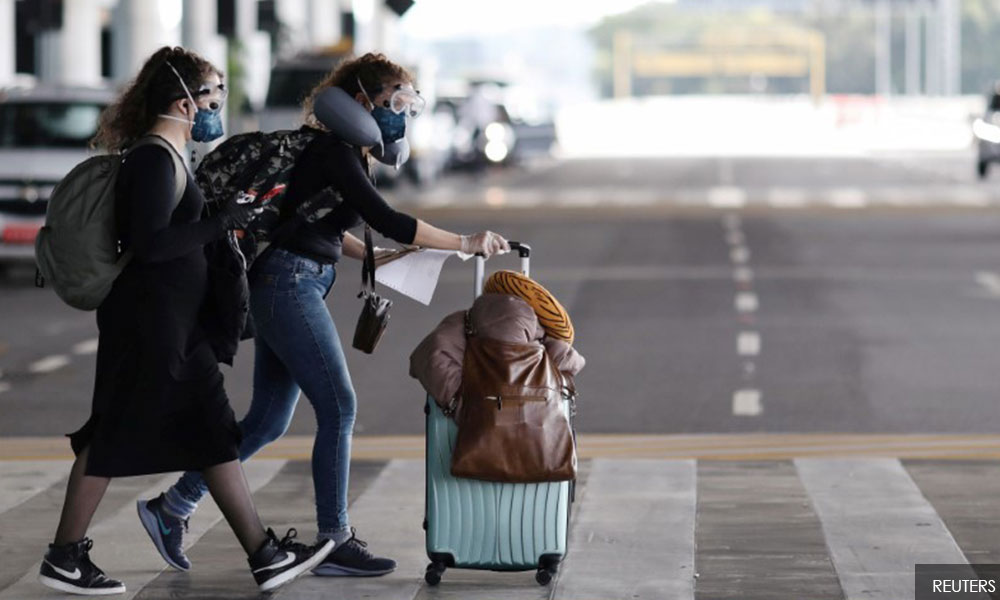Responding to the Covid economy: Understanding supply and demand shocks

MP SPEAKS | It has been more than two months since March 18, which was the start of the movement control order (MCO) in Malaysia and the full extent of the negative economic impact domestically will not be known for a few months.
But as we approach June 9, and hopefully the lifting of the conditional movement control order (MCO), the country needs to have a comprehensive and substantive plan on reviving the economy and adjusting to the new normal.
To be able to plan effectively, we must first understand the unprecedented impact of the Covid-19 virus on both domestic and global economies in terms of supply and demand shocks. Our understanding will shape the policy choices that are before us under a Covid economy and how conventional economic and financial measures may work differently under a vastly changed economic structure. Without this understanding, we may run into the danger of adopting policy tools which are ineffective in a Covid economy,
The Covid virus resulted in a severe negative supply shock to China’s economy, and it has now spread to the rest of the world. We have had negative supply shocks in the past. The oil crisis in 1973 resulted in a quadrupling of oil prices which then led to petrol shortages, increases to the cost of production and high inflation. Natural disasters such as the tsunamis in the Indian Ocean in 2004, and the tsunami in Japan in 2001 which led to the Fukushima Daiichi nuclear disaster, can also cause localised supply shocks.
The consequences of such negative supply shocks is a contraction of production, some destruction of production capacity and the disruption of the supply chain.
What’s different about the COVID supply shock this time?
Firstly, the nature of this supply shock is global in nature. Many countries had to shut down meaningful economic activity over the past few months. Most factories were closed as were almost all shopping malls, restaurants and other retail and service activity.

International travel grounded to a standstill and so did tourism-related activities. The negative economic impact of this global lockdown still remains unclear. We only know that the impact will be massive from an employment and business sustainability standpoint.
Secondly, we are not likely to experience a V-shaped economic bounce as the impact of the Covid virus will remain, at least until a vaccine is found, produced and widely distributed.
In the meantime, everyone has to adjust to a new normal where supply restrictions will continue. For example, many service sector businesses will not be able to operate at pre-Covid capacity. Restaurants have to decrease their seating capacity, cinemas have to leave seats empty between cinema-goers, hair salons and gyms – when they are allowed to operate – will have to limit the number of clients in their premises.
Thirdly, some capacity has already been destroyed by the lockdown, including in Malaysia. Many hotels have already announced that they will be closed permanently. Some foreign textile manufacturers have also announced the impending closure of their production facilities in Malaysia. More businesses will likely announce their closure after the Hari Raya holidays. The lifting of the MCO will not save many of these businesses from shutting down.
Fourthly, the severe impact of this negative supply shock has also caused an equally severe and negative demand shock to the global economy.
The last two major economic downturns, in 1998 and in 2008, were caused by financial crises which led to significant demand shocks to the global economy in varying degrees. The Asian financial crisis in 1998 and the global financial crisis in 2008 caused a sharp decrease in financial lending as well as a sharp decrease in consumer demand which then caused gross domestic product to drop.
What’s different about the Covid demand shock this time?
Global, as well as domestic demand, will likely remain suppressed for the remainder of the year, if not longer. The unprecedented increase in global unemployment will result in lower disposable income for spending.
There will also be pay cuts across all levels in many companies which are trying to survive through the Covid economy. Even for those who have gainful employment and have not suffered pay cuts, health fears will decrease the desire to go out to shop, eat and travel.
Uncertainties about the future of the economy, not helped by the current political situation in Malaysia, will also dampen consumer demand in the country.
The pains which the retail sector will continue to experience illustrates the nature of this demand shock. Shopping malls, for example, are not likely to see foot traffic and buying patterns return to pre-Covid levels after the MCO.

There will continue to be mutually reinforcing interactive effects between the supply and demand shocks which will affect the economy negatively. This is also something which is unique to the Covid economy.
The most obvious example of this is the travel and tourism sector. On the supply side, government restrictions have been put in place to limit and in some cases, prevent, inbound tourists. On the demand side, people are not willing to travel overseas because of strict quarantine procedures and also health fears. As such, the travel and tourism sectors will not easily bounce back in the near future.
Given the severity and likely duration of the negative supply and demand shocks, we cannot assume that policies which have worked in the past to stimulate demand or revive production will work under the Covid economy. For example, while government spending is important, Keynesian-type deficit spending which is not targeted will not have the effect of increasing demand and reviving consumer confidence. The lowering of interest rates may be helpful to lower the borrowing costs for existing businesses but will not necessarily prevent many businesses from going bankrupt because of supply-side restrictions.
We have read the phrases "all of government" and "whole of society" being used as starting points to respond to the Covid economy. This needs to be supplemented with a targeted sectoral approach by all of the relevant stakeholders to respond to the demand and supply shocks in the short and medium-term until a vaccine is found and widely distributed.
I will be highlighting some examples of this targeted sectoral approach in weeks to come.
ONG KIAN MING is the Member of Parliament for Bangi. - Mkini
✍ Credit given to the original owner of this post : ☕ Malaysians Must Know the TRUTH
🌐 Hit This Link To Find Out More On Their Articles...🏄🏻♀️ Enjoy Surfing!



















Post a Comment